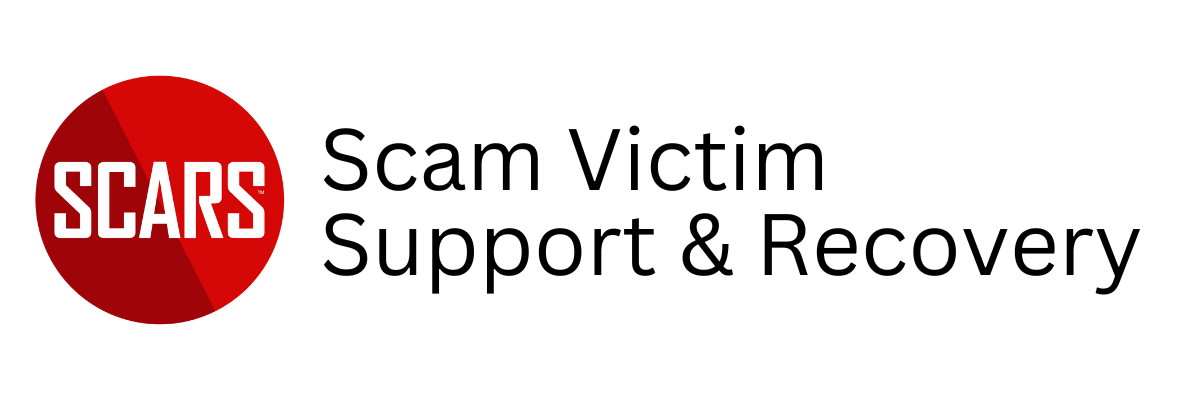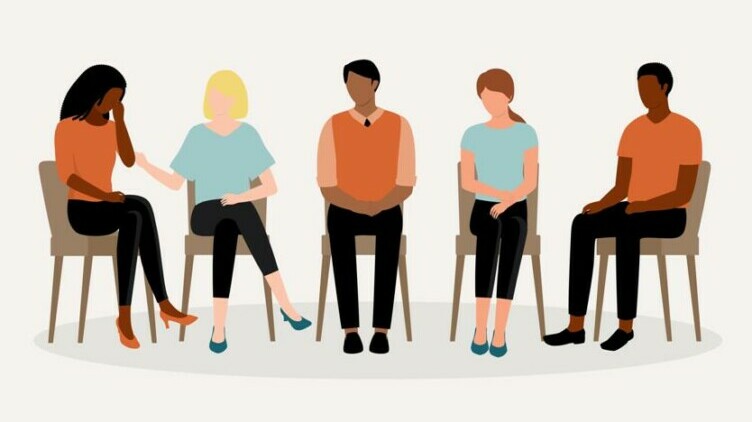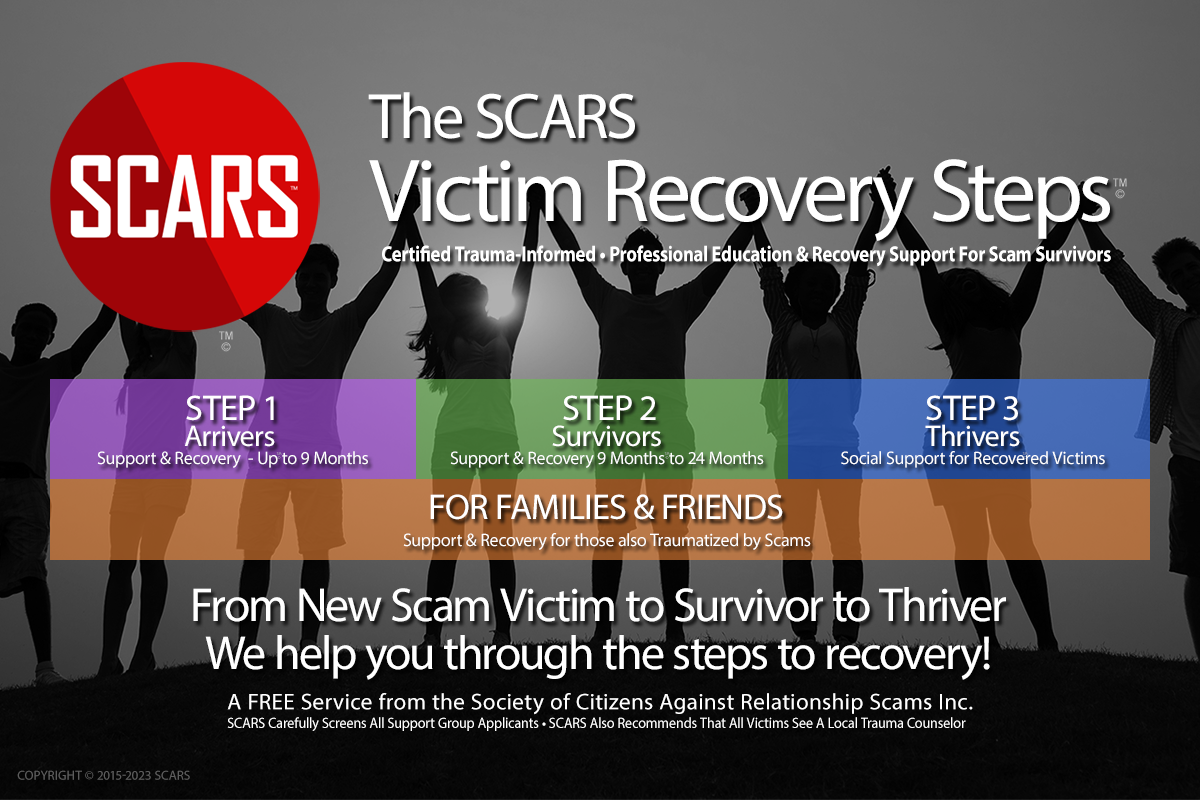SCARS Emotional Scam Victims’ Support & Recovery Program
Turning Them Into Scam Survivors
Author:
• Tim McGuinness, Ph.D. – Anthropologist, Scientist, Director of the Society of Citizens Against Relationship Scams Inc.

Article Abstract
The SCARS 3 Step Emotional Support & Recovery Program for Relationship Scam Victims is a structured, comprehensive initiative aimed at transforming victims into survivors and ultimately thriving individuals.
In the first step, “New Arrivers,” victims receive crisis support, immediate assistance, and guidance on confronting the reality of their situation.
The second step, spanning the next 12 months, focuses on acceptance and empowerment, encouraging survivors to reinforce recovery gains, take corrective actions, and integrate the experience into their life stories.
The program provides ongoing support in the third step, promoting continued acceptance, socialization, and advocacy.
With components like individual therapy, support groups, and legal advice, the program operates on key principles such as trauma-informed care, compassion, and empowerment, offering victims a structured roadmap for healing.
SCARS Emotional Support & Recovery Program For Scam Victims Turning Them Into Scam Survivors
SCARS 3-Step Emotional Support & Recovery Program for Relationship Scam Victims
This is a support & recovery program invented by SCARS based on over 100 years of recovery & psychological science.
Please note the time scales are typical estimates. Each individual’s experience will vary based upon their own trauma and their commitment to their recovery. Step duration is fixed and a part of the program.
When we refer to therapy or counseling, this is independent of SCARS itself. SCARS recommends that all scam victims find professional trauma counseling or therapy. SCARS is partnered with BetterHelp.com to provide initial therapy through its SCARS STAR Membership program – but this is not mandatory for access to our Support & Recovery Program. To learn more about the SCARS STAR Membership visit membership.AgainstScams.org To find trauma counselors or therapists worldwide visit counseling.AgainstScams.org
SCARS Emotional Support & Recovery Program STEP 1
The first 9 months – New Arrivers
Early Crisis Support
We have a special Step ZERO support group for scam victims who are overwhelmed and experiencing too much trauma to adapt to our regular groups just yet. The focus in the Step Zero group is stabilization.
Discovery and Crisis (3-8 Weeks +/-)
- Immediate Support:
- Crisis Hotlines: National Suicide Prevention Lifeline (988), Crisis Text Line (Text HOME to 741741)
- Mental Health Professionals: Seek individual therapy or join a support group specifically for scam victims.
- Legal and Financial Aid: Consult lawyers and financial advisors to secure your finances and explore legal options.
- Confronting the Reality:
- Gather evidence and document the scam: This helps solidify the truth and prevent further engagement.
- Educate yourself about the tactics used by the criminals: Understanding the whole process of victimization, including manipulation techniques employed can empower victims and prevent future scams.
- Validate your emotions: Allow yourself to feel anger, sadness, and betrayal. Bottling them up will hinder healing.
Begin Processing the Grief and Understanding Trauma (next 12 Weeks +/-)
-
Grieving the Lost Relationship:
- Acknowledge the loss: Accept that the relationship was never real, and grieve the idealized version of the scammer.
- Journaling and creative expression: Express your emotions through writing, art, or other creative outlets.
- Support groups and therapy: Connecting with others who understand can provide solace and validation.
-
Healing the Trauma:
- Trauma-informed coaching and guidance: Helping survivors learn about their minds and how to better manage their own trauma and grief.
- Trauma-focused therapy: Recommended third-part counseling or therapy to help address and learn techniques like cognitive behavioral therapy (CBT) and eye movement desensitization and reprocessing (EMDR) can help process and manage trauma symptoms.
- Mindfulness and relaxation techniques: Practices like deep breathing and meditation can help manage stress and anxiety associated with the trauma.
- Physical activity: Encouraging survivors to engage in exercise releases endorphins and promotes overall well-being.
Rebuilding Self-Esteem and Trust (next 16 Weeks +/-)
- Focus on self-compassion: Practice self-forgiveness and avoid self-blame. You were targeted by skilled manipulators, not because of any personal flaws.
- Rebuilding trust: Start small by confiding in trusted friends and family. Gradually rebuild your trust in yourself and your ability to discern genuine connections.
- Reconnecting with loved ones and friends: Open up about your experience and seek their support. Strengthen your existing relationships and create new, healthy connections. Begin to recognize that they were victims too.
SCARS Emotional Support & Recovery Program STEP 2
The next 12 months
Acceptance and Empowerment (Survivors)
- Reinforce recovery gains: Stay focused and committed to recovery and supporting others.
- Corrective actions: many survivors avoid or are resistant to necessary steps, but now must confront them.
- Acceptance: Integrate the experience into your life story without letting it define you.
- Setting boundaries: Develop healthy communication skills and establish clear boundaries to protect yourself from future manipulation.
- Advocacy and awareness: Consider sharing your story to raise awareness about scams and empower others.
SCARS Emotional Support & Recovery Program STEP 3
For as long as they want
Acceptance and Empowerment (Thrivors)
- Socialization: Expand your community with other survivors and turn it into a social context
- Final Acceptance: Integrate the experience into your life story without letting it define you.
- Setting boundaries: Develop healthy communication skills and establish clear boundaries to protect yourself from future manipulation.
- Advocacy and awareness: Consider sharing your story to raise awareness about scams and empower others.
SCARS Emotional Support & Recovery Program Components
Provided by SCARS:
- Weekly Zoom Calls
- Individual support sessions
- Support groups led by experienced facilitators
- Educational workshops on scam tactics and recovery strategies
- Mindfulness and relaxation techniques
- Physical activity and wellness sessions
- Creative expression workshops
- Legal and financial advice
- Peer mentoring and buddy system
Third-party services:
- Crisis Hotlines: National Suicide Prevention Lifeline (988), Crisis Text Line (Text HOME to 741741)
- Mental Health Professionals: Seek individual therapy or join a support group specifically for scam victims. Either BetterHelp or other counseling or therapy.
- Legal and Financial Aid: Consult lawyers and financial advisors to secure your finances and explore legal options.
Key Principles:
- Trauma-informed care: Acknowledge the unique needs and experiences of scam victims.
- Compassion and empathy: Create a safe and supportive environment for healing.
- Empowerment and self-advocacy: Equip victims with the tools and knowledge to regain control and rebuild their lives.
- Holistic approach: Address the emotional, psychological, and practical aspects of recovery.
Remember, healing is a journey, not a destination. This program is a roadmap, but everyone’s pace and needs will vary. With support, guidance, and self-compassion, you can move through the pain, rebuild your life, and emerge stronger from this experience.
-/ 30 /-
What do you think about this?
Please share your thoughts in a comment below!
-/ 30 /-
What do you think about this?
Please share your thoughts in a comment below!
SCARS LINKS: AgainstScams.org RomanceScamsNOW.com ContraEstafas.org ScammerPhotos.com Anyscam.com ScamsNOW.com
reporting.AgainstScams.org support.AgainstScams.org membership.AgainstScams.org donate.AgainstScams.org shop.AgainstScams.org
youtube.AgainstScams.org linkedin.AgainstScams.org facebook.AgainstScams.org
TABLE OF CONTENTS
- Turning Them Into Scam Survivors
- Article Abstract
- SCARS 3-Step Emotional Support & Recovery Program for Relationship Scam Victims
- SCARS Emotional Support & Recovery Program STEP 1
- SCARS Emotional Support & Recovery Program STEP 2
- SCARS Emotional Support & Recovery Program STEP 3
- SCARS Emotional Support & Recovery Program Components
CATEGORIES
![NavyLogo@4x-81[1] SCARS Emotional Scam Victims' Support & Recovery Program - Turning Them Into Scam Survivors 2024](https://scamsnow.com/wp-content/uploads/2025/04/NavyLogo@4x-811.png)
ARTICLE META
Important Information for New Scam Victims
- Please visit www.ScamVictimsSupport.org – a SCARS Website for New Scam Victims & Sextortion Victims.
- SCARS Institute now offers its free, safe, and private Scam Survivor’s Support Community at www.SCARScommunity.org – this is not on a social media platform, it is our own safe & secure platform created by the SCARS Institute especially for scam victims & survivors.
- SCARS Institute now offers a free recovery learning program at www.SCARSeducation.org.
- Please visit www.ScamPsychology.org – to more fully understand the psychological concepts involved in scams and scam victim recovery.
If you are looking for local trauma counselors, please visit counseling.AgainstScams.org
If you need to speak with someone now, you can dial 988 or find phone numbers for crisis hotlines all around the world here: www.opencounseling.com/suicide-hotlines
Statement About Victim Blaming
Some of our articles discuss various aspects of victims. This is both about better understanding victims (the science of victimology) and their behaviors and psychology. This helps us to educate victims/survivors about why these crimes happened and not to blame themselves, better develop recovery programs, and help victims avoid scams in the future. At times, this may sound like blaming the victim, but it does not blame scam victims; we are simply explaining the hows and whys of the experience victims have.
These articles, about the Psychology of Scams or Victim Psychology – meaning that all humans have psychological or cognitive characteristics in common that can either be exploited or work against us – help us all to understand the unique challenges victims face before, during, and after scams, fraud, or cybercrimes. These sometimes talk about some of the vulnerabilities the scammers exploit. Victims rarely have control of them or are even aware of them, until something like a scam happens, and then they can learn how their mind works and how to overcome these mechanisms.
Articles like these help victims and others understand these processes and how to help prevent them from being exploited again or to help them recover more easily by understanding their post-scam behaviors. Learn more about the Psychology of Scams at www.ScamPsychology.org
SCARS INSTITUTE RESOURCES:
If You Have Been Victimized By A Scam Or Cybercrime
♦ If you are a victim of scams, go to www.ScamVictimsSupport.org for real knowledge and help
♦ SCARS Institute now offers its free, safe, and private Scam Survivor’s Support Community at www.SCARScommunity.org/register – this is not on a social media platform, it is our own safe & secure platform created by the SCARS Institute especially for scam victims & survivors.
♦ Enroll in SCARS Scam Survivor’s School now at www.SCARSeducation.org
♦ To report criminals, visit https://reporting.AgainstScams.org – we will NEVER give your data to money recovery companies like some do!
♦ Follow us and find our podcasts, webinars, and helpful videos on YouTube: https://www.youtube.com/@RomancescamsNowcom
♦ Learn about the Psychology of Scams at www.ScamPsychology.org
♦ Dig deeper into the reality of scams, fraud, and cybercrime at www.ScamsNOW.com and www.RomanceScamsNOW.com
♦ Scam Survivor’s Stories: www.ScamSurvivorStories.org
♦ For Scam Victim Advocates visit www.ScamVictimsAdvocates.org
♦ See more scammer photos on www.ScammerPhotos.com
You can also find the SCARS Institute’s knowledge and information on Facebook, Instagram, X, LinkedIn, and TruthSocial
Psychology Disclaimer:
All articles about psychology and the human brain on this website are for information & education only
The information provided in this and other SCARS articles are intended for educational and self-help purposes only and should not be construed as a substitute for professional therapy or counseling.
Note about Mindfulness: Mindfulness practices have the potential to create psychological distress for some individuals. Please consult a mental health professional or experienced meditation instructor for guidance should you encounter difficulties.
While any self-help techniques outlined herein may be beneficial for scam victims seeking to recover from their experience and move towards recovery, it is important to consult with a qualified mental health professional before initiating any course of action. Each individual’s experience and needs are unique, and what works for one person may not be suitable for another.
Additionally, any approach may not be appropriate for individuals with certain pre-existing mental health conditions or trauma histories. It is advisable to seek guidance from a licensed therapist or counselor who can provide personalized support, guidance, and treatment tailored to your specific needs.
If you are experiencing significant distress or emotional difficulties related to a scam or other traumatic event, please consult your doctor or mental health provider for appropriate care and support.
Also read our SCARS Institute Statement about Professional Care for Scam Victims – click here
If you are in crisis, feeling desperate, or in despair, please call 988 or your local crisis hotline – international numbers here.
More ScamsNOW.com Articles
A Question of Trust
At the SCARS Institute, we invite you to do your own research on the topics we speak about and publish. Our team investigates the subject being discussed, especially when it comes to understanding the scam victims-survivors’ experience. You can do Google searches, but in many cases, you will have to wade through scientific papers and studies. However, remember that biases and perspectives matter and influence the outcome. Regardless, we encourage you to explore these topics as thoroughly as you can for your own awareness.


























![scars-institute[1] SCARS Emotional Scam Victims' Support & Recovery Program - Turning Them Into Scam Survivors 2024](https://scamsnow.com/wp-content/uploads/2025/04/scars-institute1.png)

![niprc1.png1_-150×1501-1[1] SCARS Emotional Scam Victims' Support & Recovery Program - Turning Them Into Scam Survivors 2024](https://scamsnow.com/wp-content/uploads/2025/04/niprc1.png1_-150x1501-11.webp)